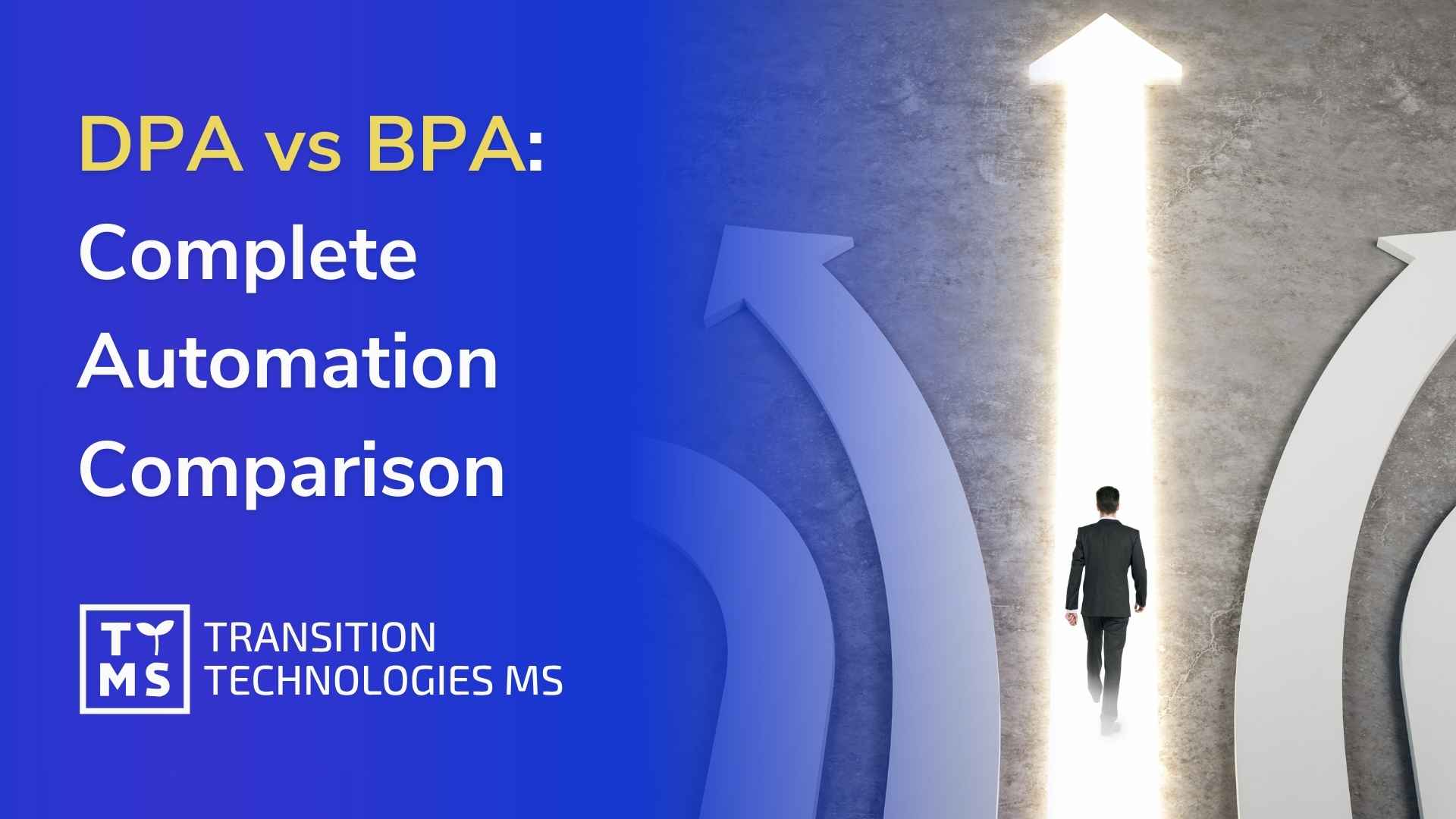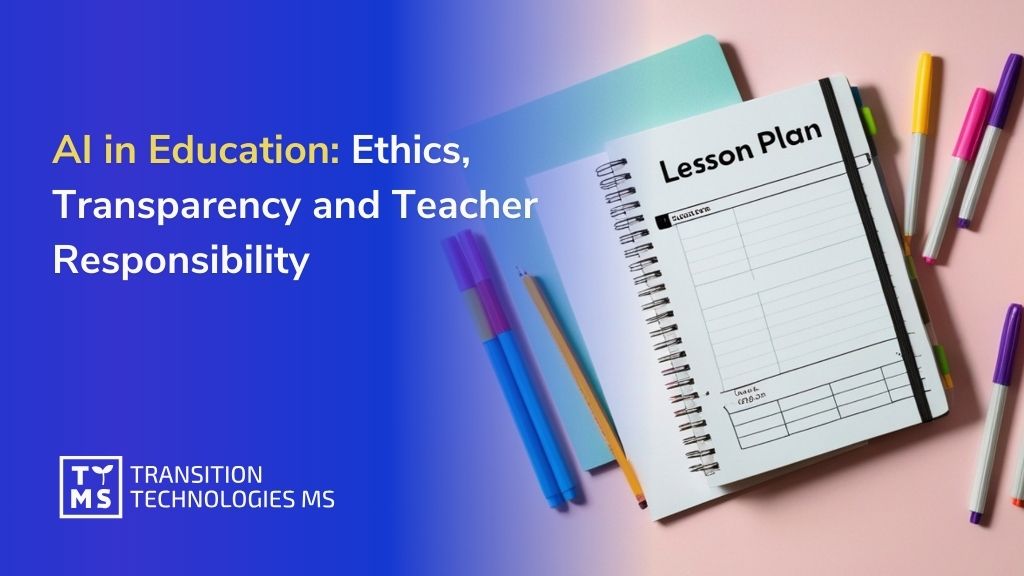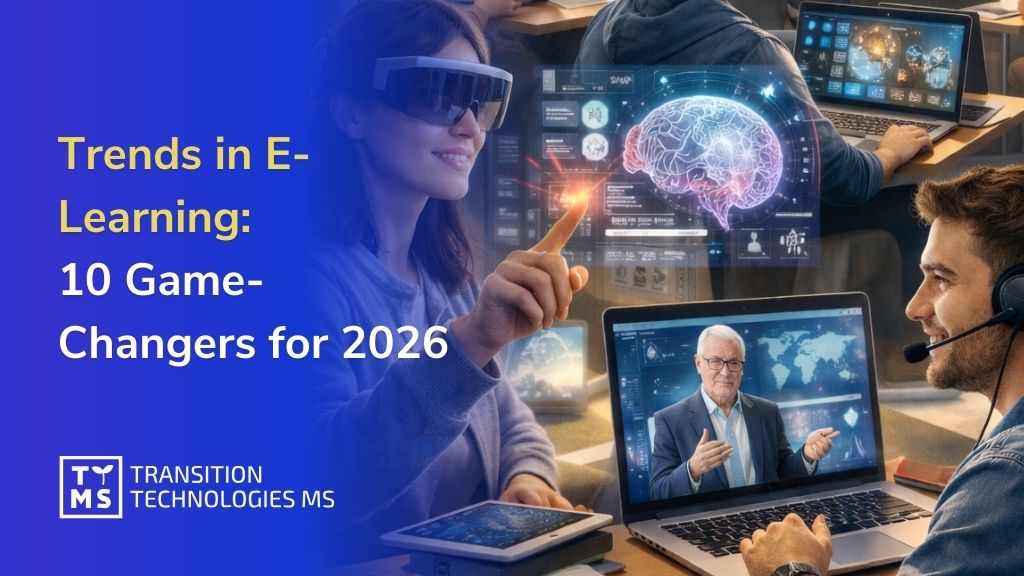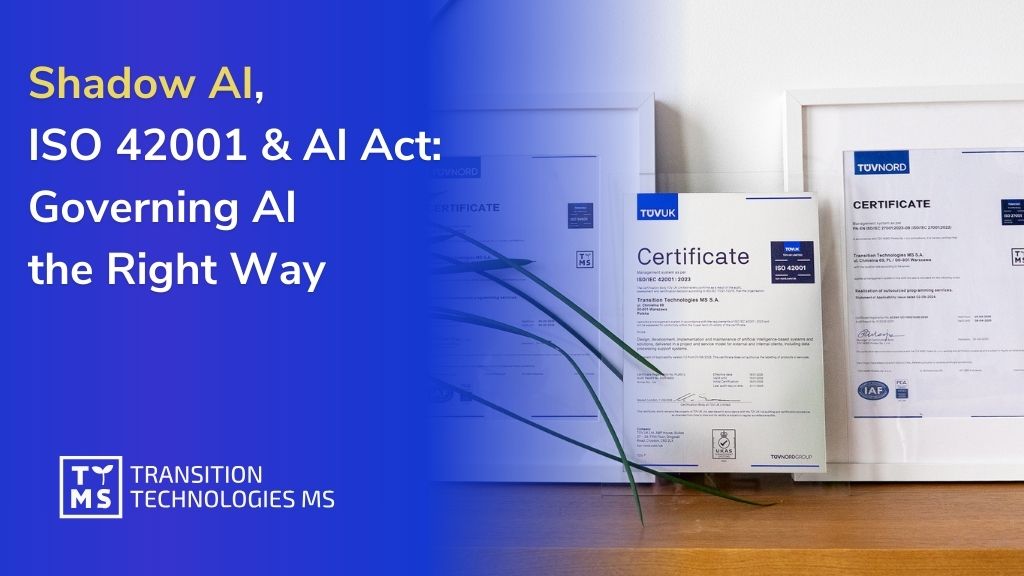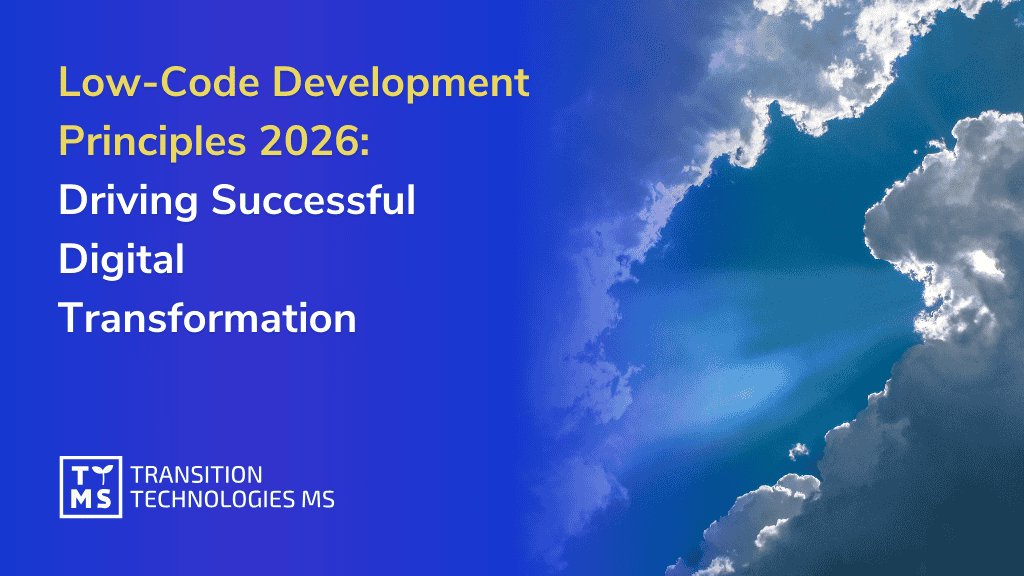
Imagine working for a company that truly invests in your development — most employees say they would stay longer in such a workplace, regardless of salary prospects.
At least that’s what the findings of the LinkedIn Workplace Learning Report suggest — an annual report based on data from millions of platform users and surveys conducted among HR and L&D (Learning & Development) professionals.
It’s no surprise, then, that the importance of corporate training continues to grow year after year — a trend we’ve been observing for quite some time. Faced with the growing challenge of continuously upskilling their workforce, more and more companies are turning to artificial intelligence for support.
AI not only transforms the way we learn — making it more flexible and personalized — but also offers relief to organizational budgets. This combination of effectiveness and cost optimization is precisely what makes AI a go-to solution for many businesses today.
1. The Need for AI Integration in Corporate Training Strategies
Today’s corporate training faces unprecedented challenges that traditional approaches struggle to address effectively. With rapidly evolving technology and shifting business landscapes, learning and development teams find themselves constrained by outdated methodologies and limited resources. Corporate training technology has evolved significantly, yet many organizations still rely on one-size-fits-all programs that fail to engage modern learners.
The personalization gap represents one of the most pressing challenges. Each employee brings unique experiences, knowledge levels, and learning preferences, making standardized training inefficient at best. Without AI assistance, recognizing and addressing these individual needs remains prohibitively time-consuming and expensive, leading to disengagement and poor knowledge retention.
Additionally, the data problem continues to grow. Organizations collect vast amounts of learning and performance data but lack the tools to transform this information into actionable insights. Corporate training technology without AI integration cannot effectively analyze patterns across thousands of learners to identify skills gaps and training opportunities at scale.
The widening skills gap presents another critical challenge. As industries transform rapidly, employees need continuous upskilling to remain effective. Traditional training cycles move too slowly to keep pace with evolving requirements, creating a perpetual lag between what employees know and what they need to know. TTMS recognizes this urgency—AI integration isn’t merely a technological enhancement but a strategic necessity for organizations committed to maintaining competitive workforce capabilities.

2. The Benefits of AI in Corporate Training
AI-powered learning platforms are revolutionizing corporate training with benefits that extend far beyond simple automation. Organizations implementing these advanced systems are witnessing transformative improvements across their entire learning ecosystem. The impact on efficiency, personalization, and learning outcomes has positioned AI as an essential component of modern training strategies.
One of the most immediate benefits is the dramatic reduction in content development time. AI significantly streamlines the creation process, allowing learning and development teams to produce high-quality training materials in a fraction of the time previously required. For example, what once took weeks of instructional design can now be accomplished in days or even hours. This efficiency doesn’t sacrifice quality—in fact, AI helps maintain consistency across all training modules while eliminating repetitive tasks that drain creative resources.
The collaborative potential of AI-powered learning platforms also deserves recognition. Subject matter experts who possess valuable knowledge but lack content creation skills can now work alongside AI assistants that help structure their expertise into effective learning materials. This collaborative approach removes the intimidating blank-page syndrome many experts face when asked to develop training content, resulting in more comprehensive knowledge transfer throughout the organization.
Perhaps most significantly, AI enables truly personalized learning experiences that were previously impossible at scale. By analyzing individual performance data, learning preferences, and career trajectories, these systems create custom learning paths that meet employees exactly where they are. This level of personalization leads to significant improvements in knowledge retention and application, with some organizations reporting up to 40% better information recall compared to traditional standardized approaches. TTMS has observed that when employees encounter training tailored to their specific needs and learning styles, engagement metrics consistently improve across all demographic groups.
Another compelling advantage is dynamic skills management. AI-powered learning platforms continuously monitor industry trends, organizational needs, and individual performance to identify emerging skill requirements. This proactive approach ensures training content remains relevant and forward-looking rather than simply addressing current gaps. As job roles evolve more rapidly than ever before, this capability helps organizations stay ahead of market demands instead of perpetually playing catch-up with outdated skill sets.

3. Implementing AI Tools in Corporate Training Programs
Successfully implementing AI tools in corporate training requires strategic planning and thoughtful execution. Organizations that approach this transformation methodically achieve the best results while minimizing disruption to existing learning ecosystems. TTMS recommends a phased implementation strategy that begins with clear objectives aligned with organizational learning goals.
3.1 Types of AI Technologies Used in Training
The landscape of ai training tools continues to evolve rapidly, with several key technologies emerging as particularly valuable for corporate learning environments. Understanding these technologies helps learning leaders make informed decisions about which solutions best address their specific training challenges.
3.1.1 Natural Language Processing (NLP)
Natural Language Processing forms the backbone of many interactive AI training tools. This technology enables systems to understand, interpret, and generate human language in remarkably natural ways. In corporate training contexts, NLP powers intelligent chatbots that serve as 24/7 learning assistants, answering employee questions and providing just-in-time learning resources without human intervention.
NLP also transforms content accessibility through advanced translation capabilities, making training materials available across language barriers instantaneously. This is particularly valuable for global organizations where consistent training delivery across regions previously presented significant challenges. Additionally, NLP enables sentiment analysis of learner feedback, helping training administrators understand emotional responses to content beyond simple satisfaction scores.
3.1.2 Machine Learning Algorithms
Machine learning algorithms represent another cornerstone of effective corporate training tools. These systems continuously analyze learner behavior data to identify patterns and make increasingly accurate predictions about individual learning preferences and needs. Unlike static learning paths, machine learning creates dynamic experiences that evolve as the learner progresses.
These algorithms excel at identifying knowledge gaps through sophisticated assessment analysis, then automatically recommending targeted content to address these specific deficiencies. The system becomes more accurate over time as it processes more learner data, creating a continuously improving learning experience. Some advanced platforms can even predict which employees might struggle with certain concepts before they encounter them, enabling proactive intervention.
3.1.3 AI-Enhanced Video and Training Simulations
AI-enhanced video and simulation technologies are revolutionizing skill practice opportunities in corporate environments. These tools create immersive, realistic scenarios where employees can safely practice complex procedures or challenging interpersonal interactions without real-world consequences. The AI component adapts the simulation difficulty based on the learner’s performance, providing an optimized challenge level.
For technical training, these simulations can replicate expensive or dangerous equipment operation, offering hands-on experience without operational risks. In soft skills development, AI characters can respond to learner choices with natural conversation flows that mimic real human interactions. The data captured from these simulation experiences provides unprecedented insight into decision-making patterns and skill application that traditional assessments simply cannot measure.
3.2 AI Teaching Assistants: Enhancing Human-Led Courses
AI teaching assistants represent one of the most practical applications of corporate training tools powered by artificial intelligence. These digital assistants enhance rather than replace human instructors, handling routine questions and administrative tasks that often consume valuable teaching time. This allows human facilitators to focus on complex concept explanations, nuanced discussions, and meaningful coaching conversations.
These assistants can monitor individual learner progress across large cohorts, flagging potential issues for instructor intervention before the learner falls behind. They also provide consistent, objective feedback on assignments and assessments, reducing the variability that comes with human grading at scale. Some advanced systems can even facilitate peer learning by intelligently matching learners who can benefit from collaboration based on complementary strengths and weaknesses.
3.3 Overcoming Common Challenges in AI Deployment
Despite the significant benefits, organizations often encounter obstacles when implementing AI training tools. Data privacy concerns represent one of the most common challenges, particularly for global organizations navigating different regulatory environments. TTMS approaches this by establishing clear data governance frameworks that ensure compliance while still enabling the AI systems to function effectively.
Technical integration with existing learning management systems often presents another hurdle. Successful implementations require thorough compatibility assessments before selection and dedicated technical resources during deployment. Organizations sometimes underestimate the importance of change management during AI implementation. Employee resistance can derail even the most sophisticated AI training initiatives if users don’t understand the benefits or feel threatened by the technology.
Quality assurance becomes increasingly important as AI creates or modifies learning content. Establishing robust review protocols prevents the distribution of inaccurate or inappropriate AI-generated material. While AI can produce content quickly, human oversight remains essential to ensure the material aligns with organizational values and learning objectives. TTMS recommends implementing a balanced human-AI collaboration model where AI drafts and suggests while human experts validate and refine.

4. Conclusion: Embracing AI for Enhanced Corporate Learning
The transformation of corporate training through artificial intelligence represents one of the most significant shifts in organizational learning in decades. As we’ve explored throughout this article, AI is not merely enhancing existing training approaches—it’s fundamentally reimagining how knowledge transfers throughout organizations. With the global corporate training market projected to reach an astonishing $805.6 billion by 2035, organizations that strategically implement AI today are positioning themselves for sustainable competitive advantage in this rapidly evolving landscape.
The question facing learning and development leaders is no longer whether to incorporate AI into training strategies, but how to do so most effectively. AI employee training solutions have matured significantly, moving beyond experimental technologies to proven systems that deliver measurable results. Organizations that delay implementation risk falling behind competitors who are already realizing the benefits of more efficient, personalized, and effective learning experiences powered by artificial intelligence.
4.1 Building a Competitive Edge with AI
Forward-thinking companies recognize that AI training for employees creates multiple competitive advantages simultaneously. First, it dramatically improves the speed at which workforces can adapt to changing market conditions and technological innovations. When employees can access personalized learning resources precisely when needed, organizations become more agile and responsive to emerging opportunities.
Second, AI-enhanced training significantly improves employee retention by demonstrating organizational commitment to individual development. As 24/7 AI teaching assistants and personalized learning paths become standard expectations among talented professionals, companies offering these advanced learning experiences gain an edge in both recruiting and retaining top talent. TTMS has observed that organizations implementing comprehensive AI employee training solutions report up to 34% higher retention rates among high-performing team members.
Third, the data insights generated through AI learning systems provide unprecedented visibility into organizational capabilities and skill gaps. This intelligence enables more strategic workforce planning and proactive skill development rather than reactive training. By 2027, analysts predict that AI-powered analytics will so fundamentally transform learning measurement that traditional training ROI calculations will become obsolete, replaced by predictive models that directly link training interventions to business outcomes.
Perhaps most importantly, organizations that successfully integrate AI into their learning ecosystems build workforces that are comfortable collaborating with intelligent technologies. This human-AI collaboration capability may prove to be the most valuable competitive advantage of all as artificial intelligence continues to transform virtually every industry and profession.
4.2 Steps Forward: Implementation and Continuous Improvement
Implementing AI training for employees requires a thoughtful, strategic approach rather than simply acquiring the latest technologies. TTMS recommends beginning with a thorough assessment of current training processes, identifying specific areas where AI can address existing challenges or capitalize on new opportunities. This targeted approach yields better results than attempting wholesale transformation all at once.
Organizations should prioritize data infrastructure early in the implementation process. AI systems require high-quality, well-structured data to function effectively, yet many learning and development departments lack robust data collection and management processes. Investing in these foundational elements before selecting specific AI solutions dramatically improves implementation outcomes and long-term success.
Cross-functional collaboration proves essential when implementing AI employee training initiatives. The most successful programs involve early partnership between learning teams, IT departments, data specialists, and business unit leaders. This collaborative approach ensures that AI systems integrate smoothly with existing technologies while addressing genuine business needs rather than implementing technology for its own sake.
Continuous improvement mechanisms must be built into any AI training implementation from the beginning. As these systems learn and evolve based on organizational data, regular evaluation ensures they remain aligned with changing business objectives. TTMS recommends quarterly reviews of AI training systems, focusing not just on technical performance but on business impact metrics that connect directly to organizational priorities.
Finally, successful organizations recognize that human expertise remains irreplaceable in AI-enhanced learning ecosystems. The most effective implementations use AI to handle routine aspects of training development and delivery while elevating human trainers to higher-value roles focused on strategy, complex problem-solving, and emotional intelligence. This harmonious blend of human and artificial intelligence creates learning experiences that neither could achieve independently.
As we look toward the future of corporate learning, one thing becomes clear: AI will not replace human trainers, but trainers who use AI effectively will replace those who don’t. Organizations that thoughtfully embrace this transformation today will build workforces better prepared for whatever challenges tomorrow may bring.

5. How TTMS Can Help Improve Your Corporate Training Using AI
TTMS stands at the forefront of corporate training transformation, leveraging advanced AI technologies to revolutionize how organizations develop their talent. Since 2015, long before AI became a buzzword in corporate learning, TTMS has been implementing cutting-edge solutions for major global enterprises including Roche, Schneider Electric, Volvo, Hitachi, and ABB. This extensive experience provides a solid foundation for delivering sophisticated ai training tools that address real business challenges rather than simply following technological trends.
Corporate training technology continues to evolve rapidly, and TTMS remains ahead of the curve by continuously refining its approach to AI integration. The company’s solutions span the entire training ecosystem, from initial needs assessment through content development, delivery, and measurement. What distinguishes TTMS is its focus on business outcomes rather than technology for its own sake—every AI implementation begins with clear organizational objectives and measurable success criteria.
TTMS offers a comprehensive suite of ai-powered learning platforms that can be tailored to specific organizational requirements. These platforms incorporate advanced analytics that provide unprecedented visibility into learning effectiveness, enabling data-driven decisions about training investments. The adaptive learning capabilities ensure that each employee receives precisely the content they need based on their role, existing knowledge, and career trajectory. This personalization dramatically improves engagement and knowledge retention compared to traditional one-size-fits-all approaches.
Content development represents one of the most time-consuming aspects of traditional corporate training. TTMS utilizes AI to create training materials with remarkable efficiency without sacrificing quality. These tools can transform existing documentation, subject matter expert interviews, and industry research into engaging, interactive learning experiences in a fraction of the time required by conventional methods. Subject matter experts can focus on contributing their specialized knowledge while the AI handles the instructional design aspects, creating a powerful synergy between human expertise and technological capability.
For organizations seeking to implement AI training for employees across multiple locations or languages, TTMS offers scalable solutions that maintain consistency while respecting cultural nuances. The company’s AI-powered translation capabilities ensure that training content retains its effectiveness across language barriers, while cultural adaptation algorithms adjust examples and scenarios to resonate with diverse audiences. This global scalability proves particularly valuable for multinational organizations striving to maintain consistent training quality worldwide.
TTMS distinguishes itself through flexible collaboration models designed to accommodate varying organizational needs. Clients can engage at three distinct levels: Staff Augmentation for targeted expertise, Team Leasing for dedicated resources, or End-to-End project implementation for comprehensive solutions. This flexibility allows organizations to begin their AI training journey at a comfortable scale, then expand as they gain confidence and witness concrete results. The company’s approach emphasizes partnership rather than transactional relationships, with TTMS experts working alongside client teams to ensure sustainable knowledge transfer.
Beyond implementing AI tools, TTMS shares its expertise through various knowledge-sharing initiatives. The annual “AI in Action” conference brings together industry leaders to exchange insights on practical AI applications in corporate settings. The company’s podcast series and expert videos provide continuous learning opportunities for organizations navigating the complex AI landscape. These educational resources reflect TTMS’s commitment to advancing the entire field of ai employee training rather than simply promoting proprietary solutions.
As a certified partner of industry leaders including AEM, Salesforce, and Microsoft, TTMS integrates corporate training tools seamlessly with existing enterprise systems. This integration capability proves particularly important for organizations seeking to avoid the creation of isolated learning ecosystems. By connecting training data with wider business analytics, TTMS enables organizations to directly link learning initiatives to operational performance metrics, creating a compelling business case for continued investment in employee development.
For organizations ready to transform their approach to employee development through AI-powered solutions, TTMS offers a proven pathway to success. With deep expertise in both learning science and artificial intelligence, coupled with extensive implementation experience across diverse industries, TTMS empowers organizations to build future-ready workforces equipped to thrive in an increasingly complex business environment. The journey toward AI-enhanced learning begins with a conversation about your specific challenges and objectives—TTMS stands ready to partner with you in building a learning ecosystem that drives sustainable competitive advantage. Contact us now!
